We include our reflections in our monthly newsletter. Visit our Contact Us page to subscribe and connect with us.
A sharp sound wakes me up. My body desperately wants to keep sleeping, and there’s a momentary battle between this instinct and my effort to rouse my being. I know, with the sound, that I have a sacred duty, and I am called here at 3 AM to fulfill my vocation to love God. In the moment, I feel like I have neither the strength nor the desire to get up and do my sacred duty. I ask God for help. Then, I rise and do what my body does not want, as a sacrifice of love. Once committed, I feel my heart warm as my attention shifts from self to the one I love.
I first set foot on the grounds of Mt. Saviour monastery a few weeks before my 20th birthday. I drove up a long, steep drive, noticed an ornately carved wooden crucifix on the edge of a pasture, then travelled past a few hundred sheep meandering across light snow on a winter hillside. Finally, I parked and walked about 50 yards to the monastery chapel. The chapel was light and spacious, and had a feeling of transcendent peace, the kind of peace that saturates a place when it has been filled with prayer and praise for decades.
Christ is Risen! Aleluia! I often find it difficult to write about the Resurrection. While the Crucifixion of Jesus Christ was a public event, seen by many and bound in the story of human sin and passion, the resurrection of Christ was hidden, and His risen body was even unrecognized by some of his closest disciples when He appeared to them after rising from the dead. It’s as if heaven so infused the body of Jesus that the ordinary human perception of the disciples could not comprehend His presence - at least not initially. Yet, in each Resurrection story in the Gospels, Jesus continues to reach out to His loved ones, making Himself known.
Bear with me, and attempt to imagine the what no human mind can imagine:
A vast realm, unbounded in very direction. An indescribably pure radiance infuses the ‘space’ around everything, though it isn’t space as we know it. Beings of unimaginable light and beauty circle in continuous praise, gratitude, and adoration around a center of even greater light, transcendent glory and perfection. The entire atmosphere is permeated with an immense warmth and love of an intensity no human has ever experienced on earth.
“Time is not time.” It’s a phrase that Lisa and I often say to each other on the homestead. She’ll say it after a ten minute walk resets her mind and heart, and the next three hours go better for her and our kids. I’ll say it after I write something in an hour of inspiration that I’ve been struggling with for the past month. There’s something decidedly non-linear about the work of homesteading.
Temptation comes. In 2024, it often comes to me via email. An organization or ministry we love has invited me to give a talk or a retreat. Or, a new contact sends a sincere, Spirit-filled inquiry about coming to Metanoia on retreat. Sometimes it’s news of an upcoming conference or workshop, or even simply a huge sale on some needed farm tool. None of these things are bad, of course. I consider each of them good, and each bears a potential gift in its own way. In this season, I’ve come to recognize these as temptations by the response I feel in my body and psyche to a new opportunity.
Sugaring season has begun here in Vermont. For about a month, winter has been steadily losing its grip on the land. The days are gradually lengthening, the sunlight intensifying, and the black-capped chickadees are singing with ever greater confidence. There’s a long, pregnant season of anticipation where’s it’s definitely still winter, yet one can feel the energy rising on the land. It’s possibly my favorite time of the year. There’s little to do on the land, yet when I walk across the crusty snow I can feel the life of the new growing season underfoot.
It’s an odd feeling, having ashes1 scraped across one’s forehead. I can’t say exactly why, but there’s something refreshing about being anointed with a symbol of my inevitable demise. Perhaps it’s because I live in a culture that is alternately terrified of death and pretends death doesn’t exist. Yet once each year, I can walk into a church and be smeared with soot and told that I am going to die: ‘Remember you are dust, and to dust you will return’
Loving Our Enemies, part 2 – Forgiveness
A conversation between Mark Kutolowski and Robin Junker-Boyce
(A transcript from part one can be viewed here).
Every morning, we start our day as a community with Lauds (morning prayer). Towards the end of Lauds, we have a time of spontaneous prayer called ‘praise and intention.’ Though we don’t have a script for the prayer, almost every day I end up praying to stay aware of God’s love, or to see God in others. It’s a simple prayer, and an intention I need to re-set every day. Sometimes I feel like I’m a bit of a broken record, especially when I couple my morning prayer of intention with my daily prayer of confession at Vespers, which is often something like ‘Lord, I confess forgetting your love this day, and failing to see you in others…’ Then the next morning at Lauds I pray again to remember. Day in, day out, our life is a task of return and remembering, coupled with forgetting, and then returning and remembering again.
Step away from your screen
Long enough to see
To notice
The enchanting worlds
At your feet
Greetings, friends. This is Robin Junker Boyce here again with Mark Kutolowski of Metanoia of Vermont eager to engage in a conversation with Mark around the topic of loving your enemies..
In Doorways to the Sacred, I explored the transformative spiritual potential of three major life events – major loss, giving birth (for women), and traditional male rites of passage (for men). Each of these major events features a significant dislocation of the ordinary psyche, and opens the doorway for unknowing, surrender, and deeper encounter with the presence of God. These powerful events can serve to re-orient our lives and forever change our sense of reality. After experiencing a ‘great surrender’, we can never believe our own agenda quite as rigidly as we had before, even if our ordinary, egoic consciousness re-asserts itself as the director of our lives.
“I don’t think I’m ready for this.” Lisa’s voice was calm and matter of fact. The sky outside our small yurt was growing lighter in anticipation of dawn and Lisa had been in intense labor for a little over an hour. Her words came in the few short minutes between contractions.
“Good,” I thought to myself. “The baby’s coming soon!”
The dawn chorus begins before I open my eyes. There are enough songs outside that it’s difficult, with my limited knowledge of bird calls, to distinguish one tune from another. Instead, it’s one layer of melody upon another, seemingly uncoordinated yet somehow harmonious and beautiful to hear.
Jesus sat down opposite the treasury and observed how the crowd put money into the treasury. Many rich people put in large sums. A poor widow also came and put in two small coins worth a few cents. Calling his disciples to himself, he said to them, “Amen, I say to you, this poor widow put in more than all the other contributors to the treasury. For they have all contributed from their surplus wealth, but she, from her poverty, has contributed all she had, her whole livelihood.”
- Mark 12:41-44
“God forbid that there be war. Please Lord, let there be peace!” Father John cried out his lament from the altar during the Prayers of the Faithful at Sunday Mass in our little country church in Norwich, Vermont. A few days later, Russia invaded Ukraine.
Fasting – it’s perhaps the single discipline most associated with Lent. We are reminded of the practices of prayer, fasting and almsgiving every year at the beginning of Lent as we commemorate Jesus Christ’s 40-day fast in the wilderness. While I grew up hearing about the spiritual value of fasting every year, practically this was translated into the practice of ‘giving up’ something for Lent. It could be a favored food, like chocolate or soda, or it could be giving up reading news media or watching TV. My dad always gave up eating between meals.
Today we enter the most sacred seasons of the Christian Church – the liturgical journey that follows Jesus into his purification in the wilderness (Lent), to his death and resurrection (The Easter Triduum), and through his ascension and the descent of the Holy Spirit at Pentecost. While this journey ultimately leads to glory and new life, the beginning is a path of ever greater descent – from the wilderness to the cross to the underworld. Christ’s journey is a great act of kenosis, or self-emptying.
One of the scribes...asked Jesus “Which is the first of all the commandments?” Jesus replied, “The first is this: ‘Hear, O Israel! The Lord our God is Lord alone! You shall love the Lord your God with all your heart, with all your soul, with all your mind, and with all your strength.’ The second is this: ‘You shall love your neighbor as yourself.’ There is no other commandment greater than these.” - Mark 12:28-31
-------------------------------------------
“She-ma Yisrael, Adonai Eloheinu, Adonai Echad”
(‘Hear O’ Israel, the Lord is our God, the Lord is One’)
So begins the Shema, recited daily by devout Jews. It’s considered by many to be the single most important prayer in Judaism. According to the Gospels, Jesus declared it to be the most important commandment of the entire Torah. It affirms that God is One, the Source of all, and that only God is worthy of the full devotion of the human heart, soul, mind and strength. It’s the essence of all monotheism, the belief in the oneness of God.
“The glory of God is a human being, fully alive.” St. Irenaeus of Lyons (2nd century)
-------------------------------------------------
“Healing is salvation. Salvation is healing. They’re the same thing.”
Father Kelly let his words hang in the hot desert air for what felt like minutes. As I did twice a week, I had come to visit him in his hermitage, nestled amidst mesquite trees in the heart of a 400,000-acre Southeast Texas ranch with no more than a handful of permanent residents. He had become my spiritual father, and during my year-long stay at Lebh Shomea House of Prayer these meetings were often my only human conversation for the week. I would spend about three hours a day in scripture study, four to five hours in silent prayer, and another four hours on my work assignments—cleaning bathrooms, pitchforking decomposing compost, watering young trees and weeding a cemetery. After several days of reflecting on scripture in solitude, I would come to see Father Kelly, and I’d ask him to expound on the meaning of key words of scripture. This week, I was asking about ‘salvation.’
“The Person who loves God cannot help loving every person as themselves.” St. Maximos the Confessor (580-662)
In these times of great uncertainty and upheaval, it is of utmost importance to ‘stay vigilant’ to our inner state. We must ask ourselves, “What is the origin of our thoughts and emotions, especially when we experience fear?” In my last essay, I proposed a path for remaining vigilant within a framework of the primitive, rational, and spiritual minds.
Awareness is a good first step, but how do we move from simple awareness to actually loving those who we find difficult to love? The twin goals of a Christian life are love of God and love of others. How can we find this path of love in a time of great fear and hostility?
Let us look more deeply into how the primitive mind grows and hardens into a full-fledged ‘false self’ and how the teachings of Jesus call us home to our true self. But before we go there, let us explore the unconditional love we were made to dwell in and pour out to others.
My invitation to each of us is to be spiritually vigilant. Whatever our beliefs might be, let us observe carefully the energies at work in our hearts. Do our hearts remain open to love? Do our minds have space for information that might contradict our narratives, or our groups’ narratives? Can we stay connected to God’s infinite, tender love of every human being involved in this pandemic, and pray for their well-being no matter who they are and what they think? These, I propose, are the essential questions for Christ-followers to ask themselves to navigate the ongoing pandemic in a spirit of faith, hope and love.
God’s great longing is for human beings to share in the fullness of God’s own life. The story of Resurrection is of the Divine-Human One (Christ) triumphing over death to bring us through all evil into an infinite freedom and union of life, light and love. The training of the eight thoughts is a way of participating in God’s self-emptying love. We learn to recognize and let go of our attraction to each of the thoughts as a way of turning our will over to God. It involves moments of painful letting go but is always held in the larger arc of God drawing us to share in infinite freedom as God’s children. The training of the desert may appear as narrow and restrictive at first, but it is a narrow gate that leads to boundless life. By consenting to this journey of transformation, we can allow God to free us of the limits of the eight thoughts, and to lead us to the purity of heart where we see God, both in this life and in life in the age to come.
When we have emptied out our identification with our thoughts, we come to experience the joy of self-forgetfulness. We cease to experience our ‘self’ as the center of our awareness, and instead encounter the immense liberty of the Kingdom of God. In the space our egoic self once occupied, the Indwelling Spirit of Christ arises, and through this divine indwelling we experience our natural unity with God, other people, and all creation. We have returned to the Garden of Eden, abiding in intimacy and oneness with God and all creation. We have turned and become like little children, and in doing so have entered the Kingdom of God. We are again sons and daughters of God, not only in name but in our felt experience.
It is through this path of humility, participating in the Way of Christ, that our hearts are healed, and we are restored to our original nature in the image and likeness of God. This is the ultimate goal of the desert training on the eight thoughts. The training is a tool which we can use to become aware, to humble ourselves, and to unite our path with the path of the Divine-human One, Jesus Christ.
The only thing ultimately worthy of praise in a person is the indwelling presence of God – which is not our own possession but a pure gift of divine grace. All else is temporary, fleeting, and ‘empty’ of infinite value. The desert teaching on vainglory is not about rejecting praise or status, but about clarity of vision. We are invited to see through the limited value of all human validation to find the only glory that can give lasting peace and freedom to our heart – the participation in divine glory as a free gift of God.
In the spiritual life, acedia arises in response to our spiritual commitments and vocations. Weariness pervades precisely in the arenas of our life that had previously been a source of great joy. Prayer feels dry and cold, when before it was rich and alive. Scripture and spiritual reading used to be inspiring. The words now seem out-of-touch and even make me feel irritable. The same liturgy, worship services, and rituals that ignited my soul’s fire become boring and laborious. In vocational marriage or vowed monasticism, the wife, husband, nun, or monk wonders what they were thinking ten, fifteen, twenty years ago when they took these vows. What did I ever see in him? Or Why did I ever think this is what I was meant to do with my life?The marriage or monastery begins to feel small and suffocating. The person afflicted with acedia spends a lot of time looking at the door and wondering what it would be like if they walked through it.
Like Dejection, the thought of Anger is related to the frustration of the desires of ego. Whereas dejection is a sinking down, anger is a flaring out. Anger brings heat, intensity, and passion. It is activating and threatens to quickly take over one’s heart when it arises. Like the story of when I badly hurt myself, when we feed our anger it narrows our awareness, drives our actions, and blinds us to the fullness of reality.
The root of the word dejection means ‘to be thrown down,’[1] and this is a good image of the effect of this spirit on our souls. Dejection pulls us downward, inward, and depresses or flattens out our energy. It is like a fog descending over our awareness, clouding our ability to perceive anything else. It is the energy of sadness, but a particular type of sadness that is linked to the refusal to accept our present reality and the inability to see a way out. When afflicted by the full-blow passion of dejection, life feels helpless and hopeless, and we may begin to question whether it is worth living. In this state, it is impossible to feel the presence of God, who is the superabundant fullness of life. We lose access to the trusting vulnerability of faith, the open-hearted cheer of hope, and the warmth of love.








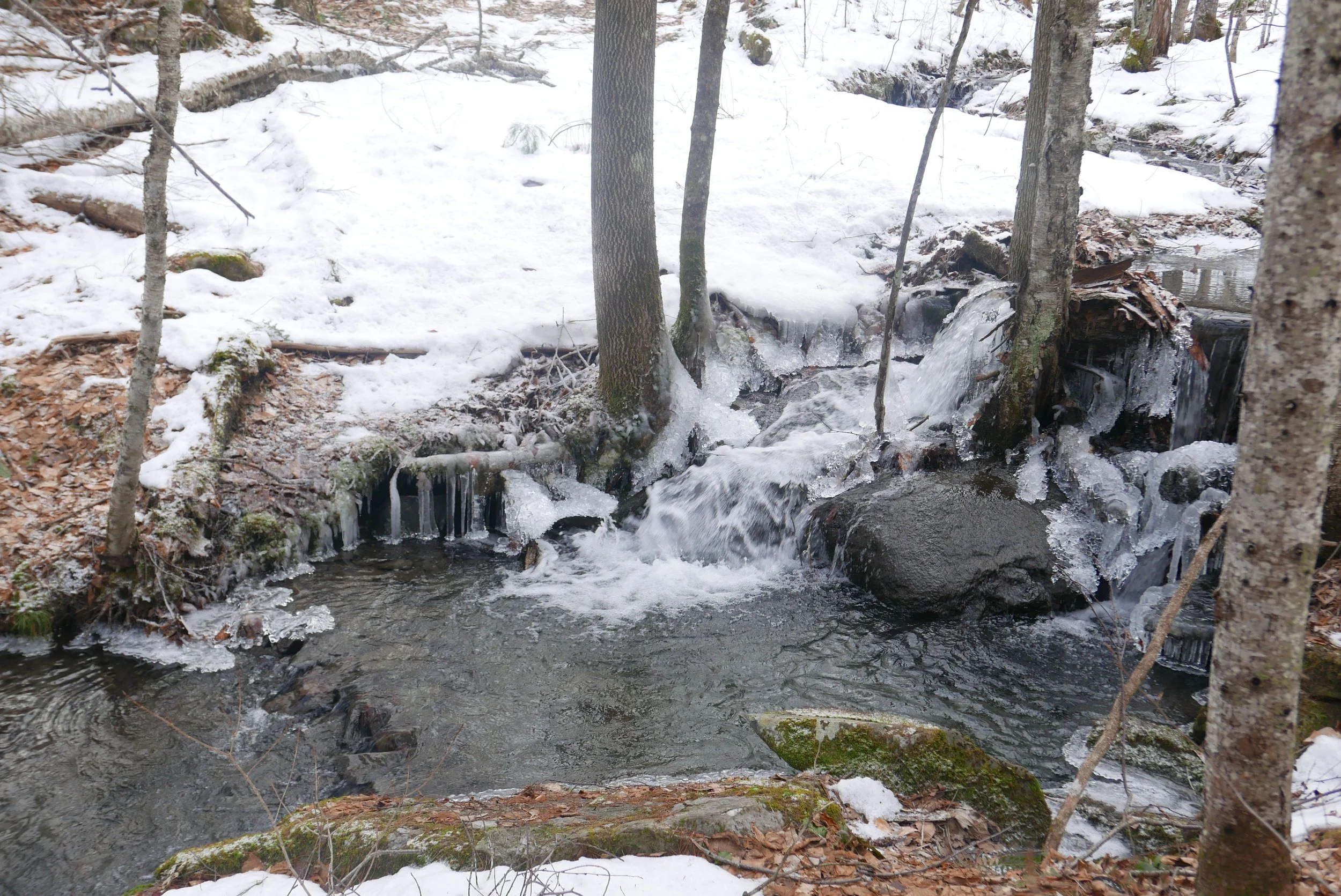



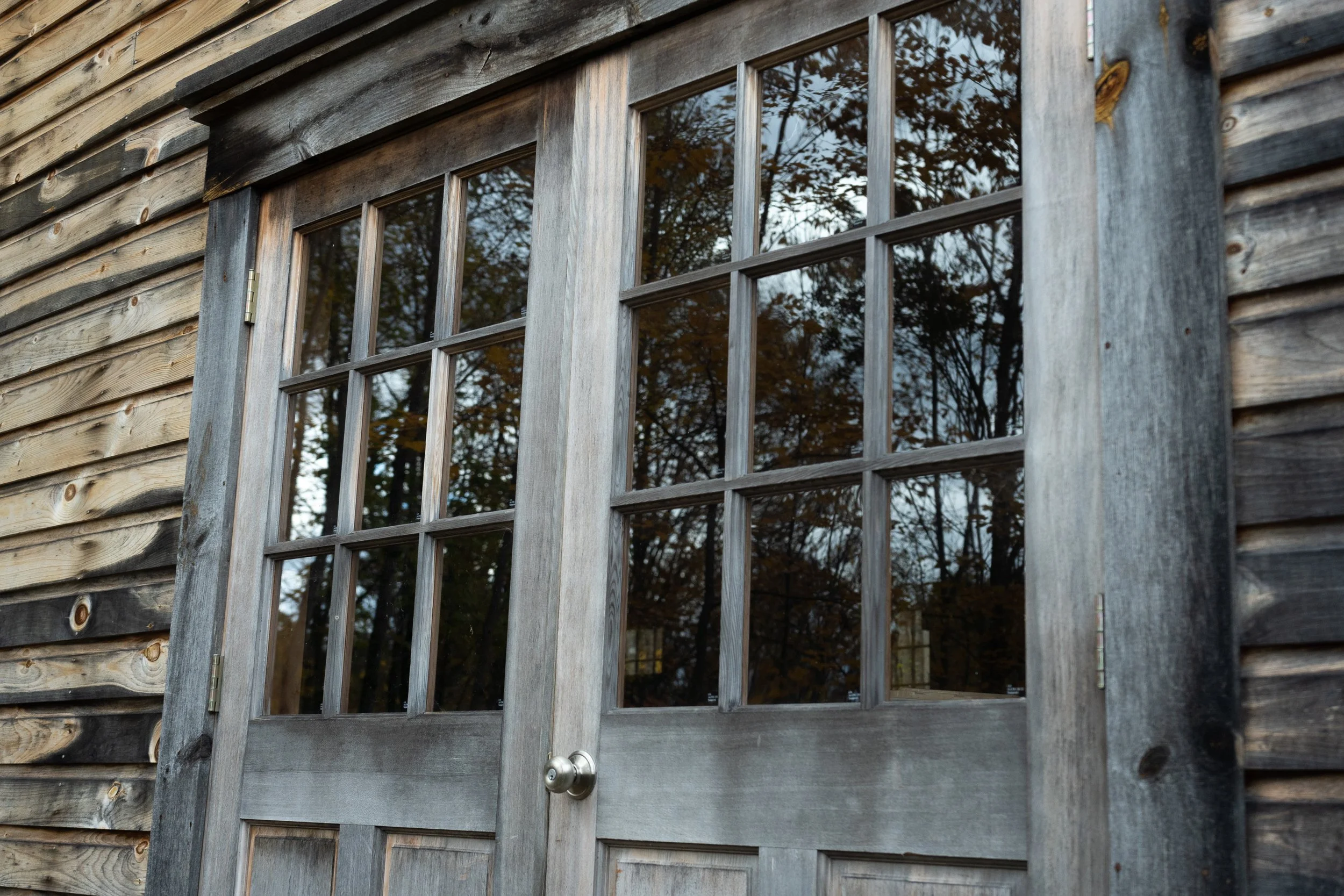


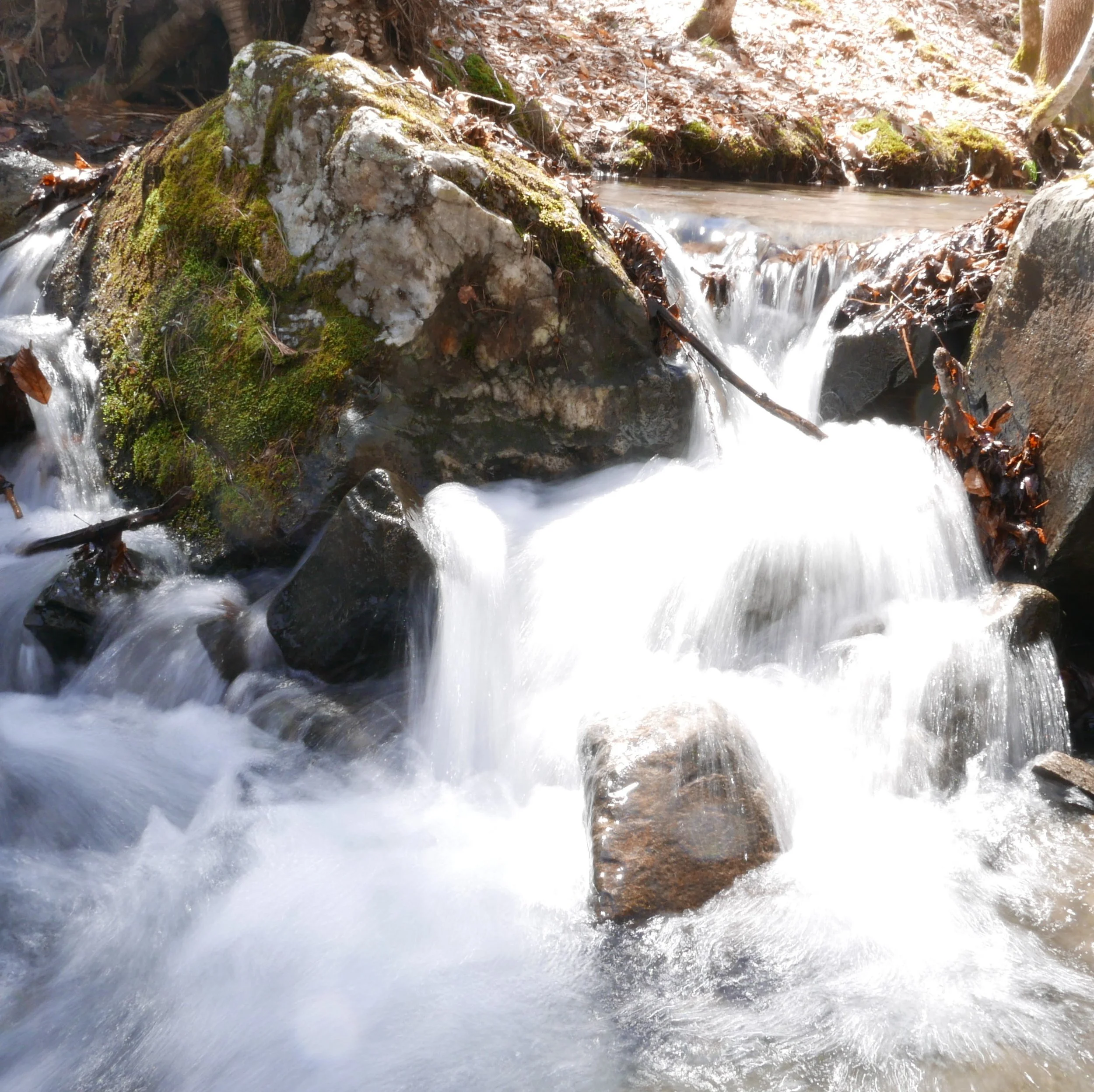
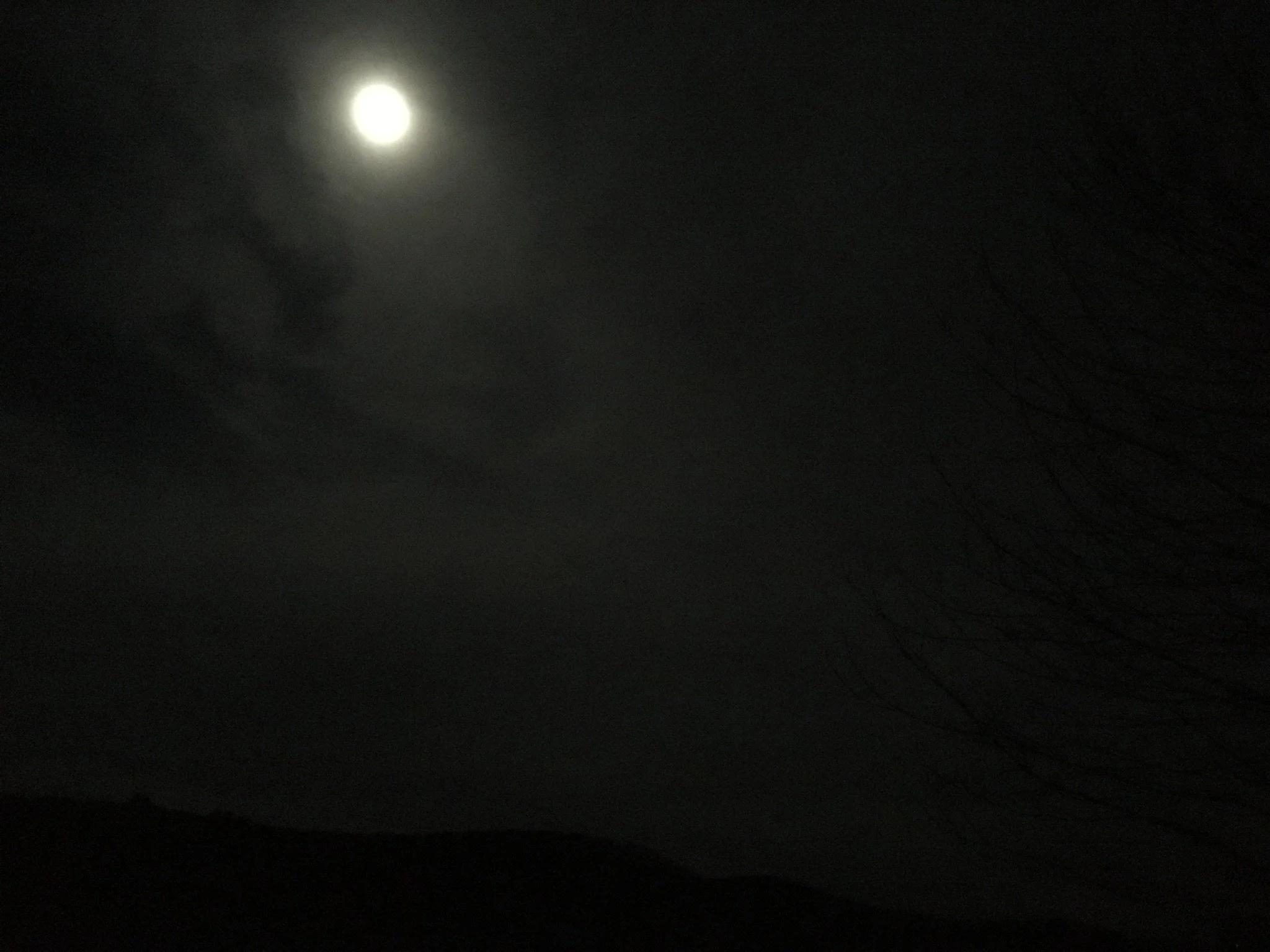
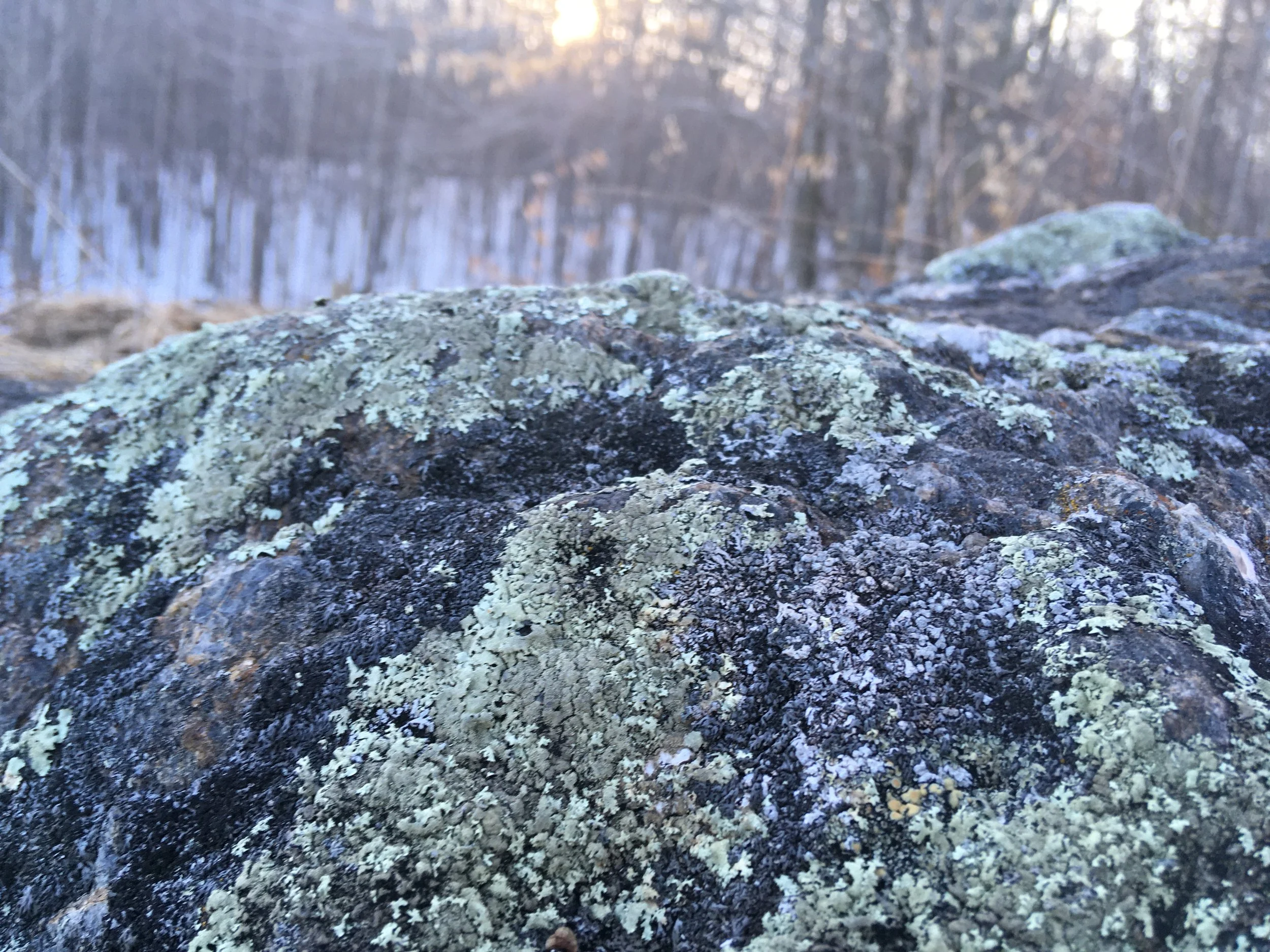
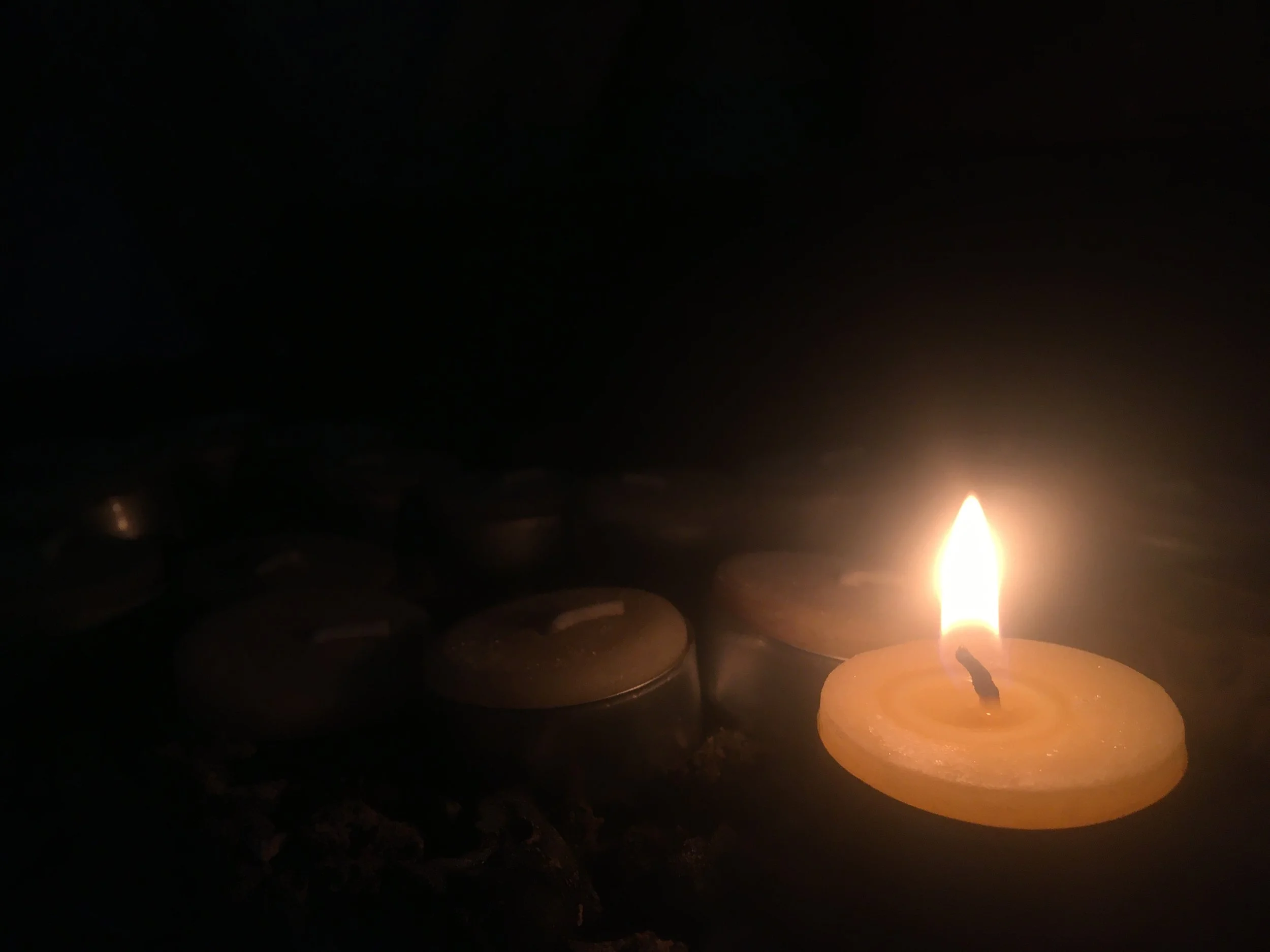

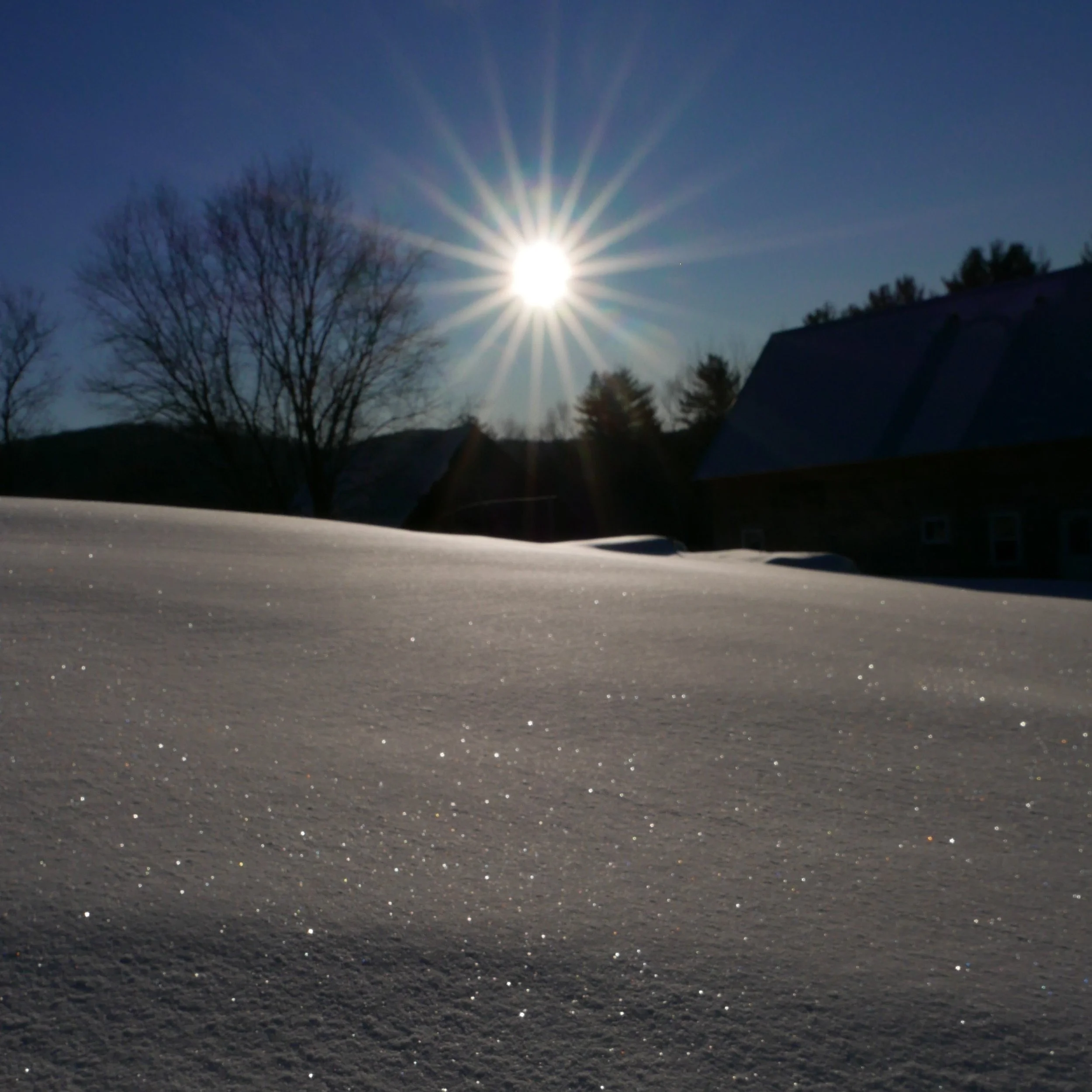
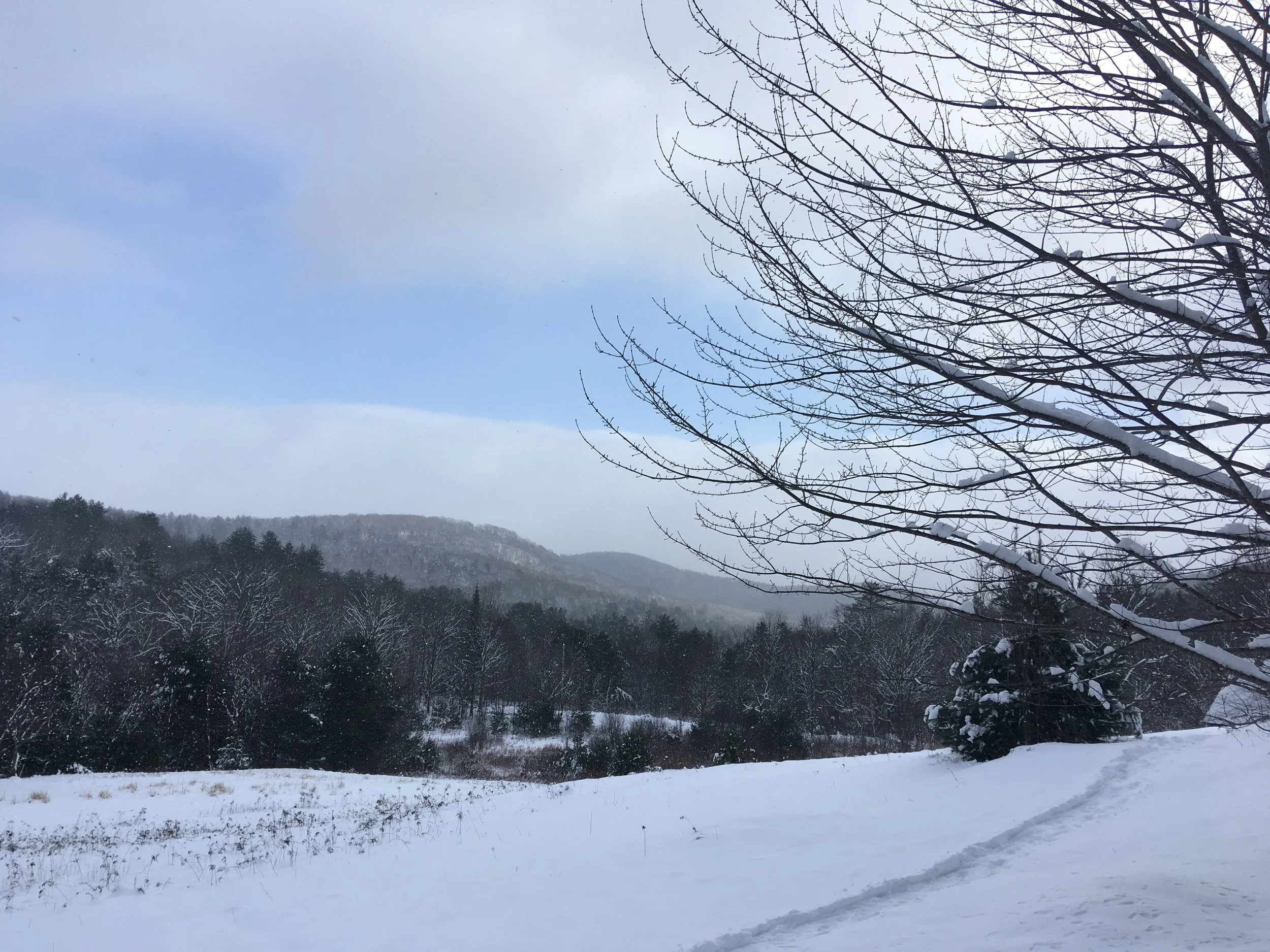
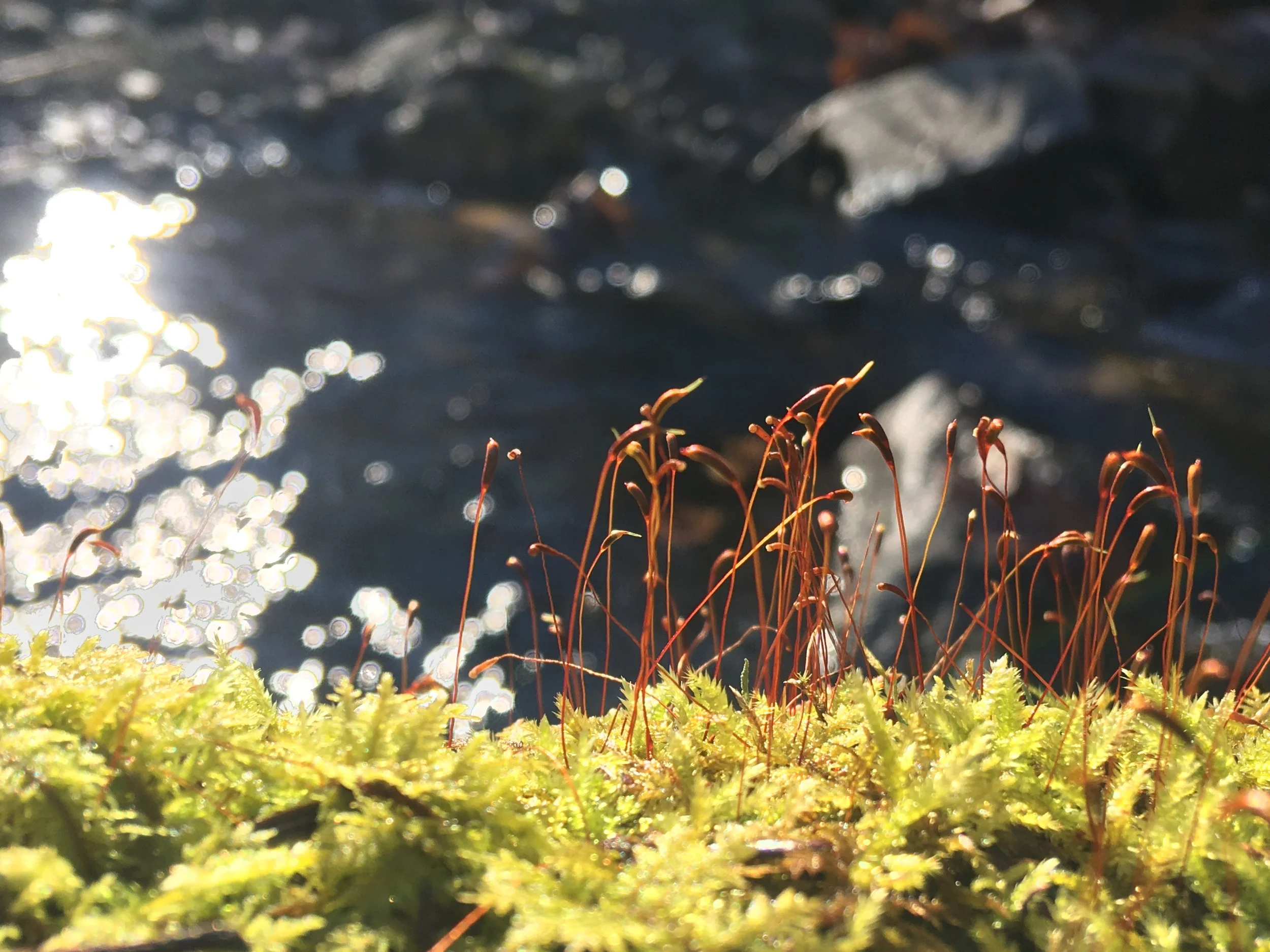
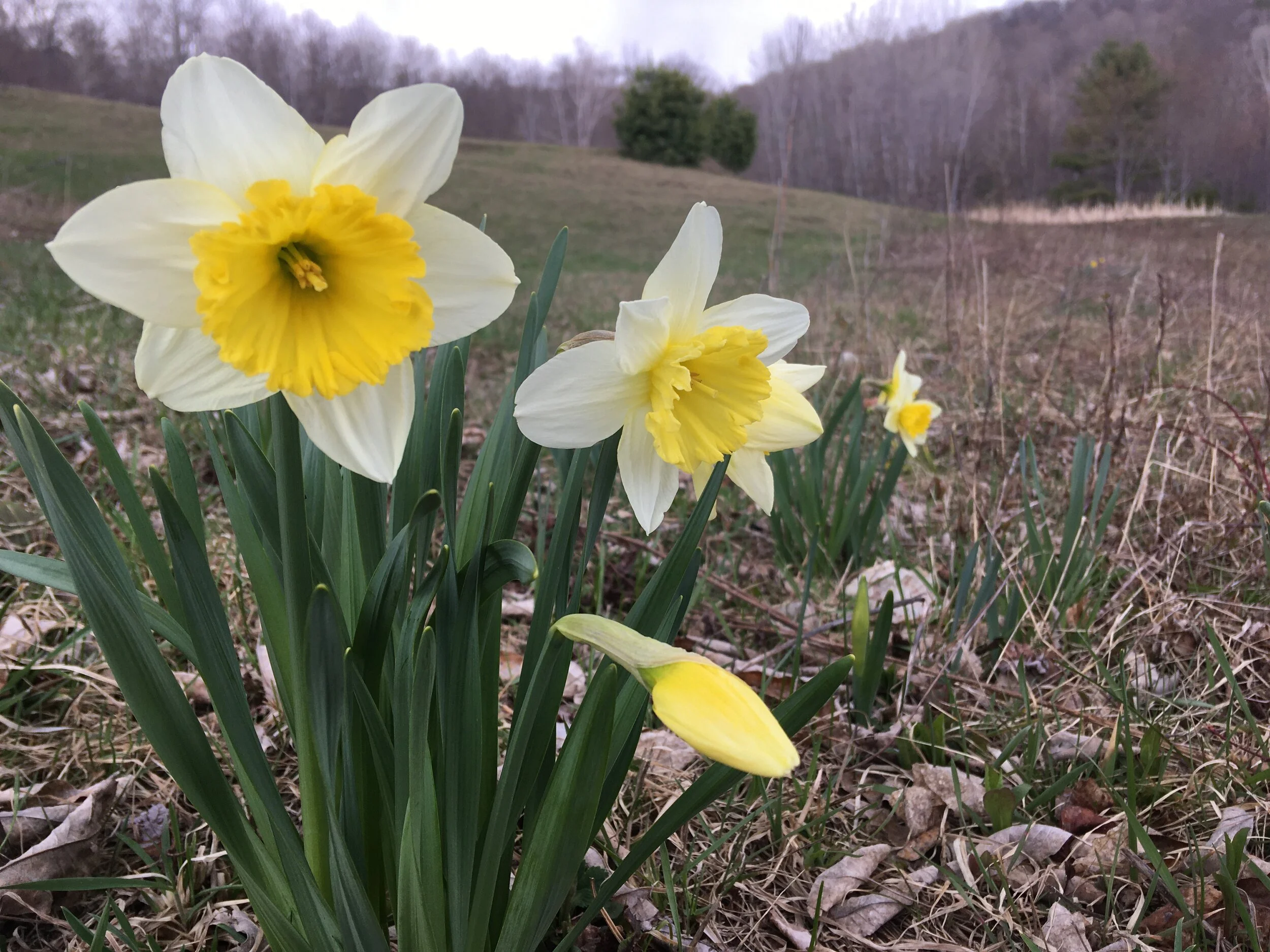
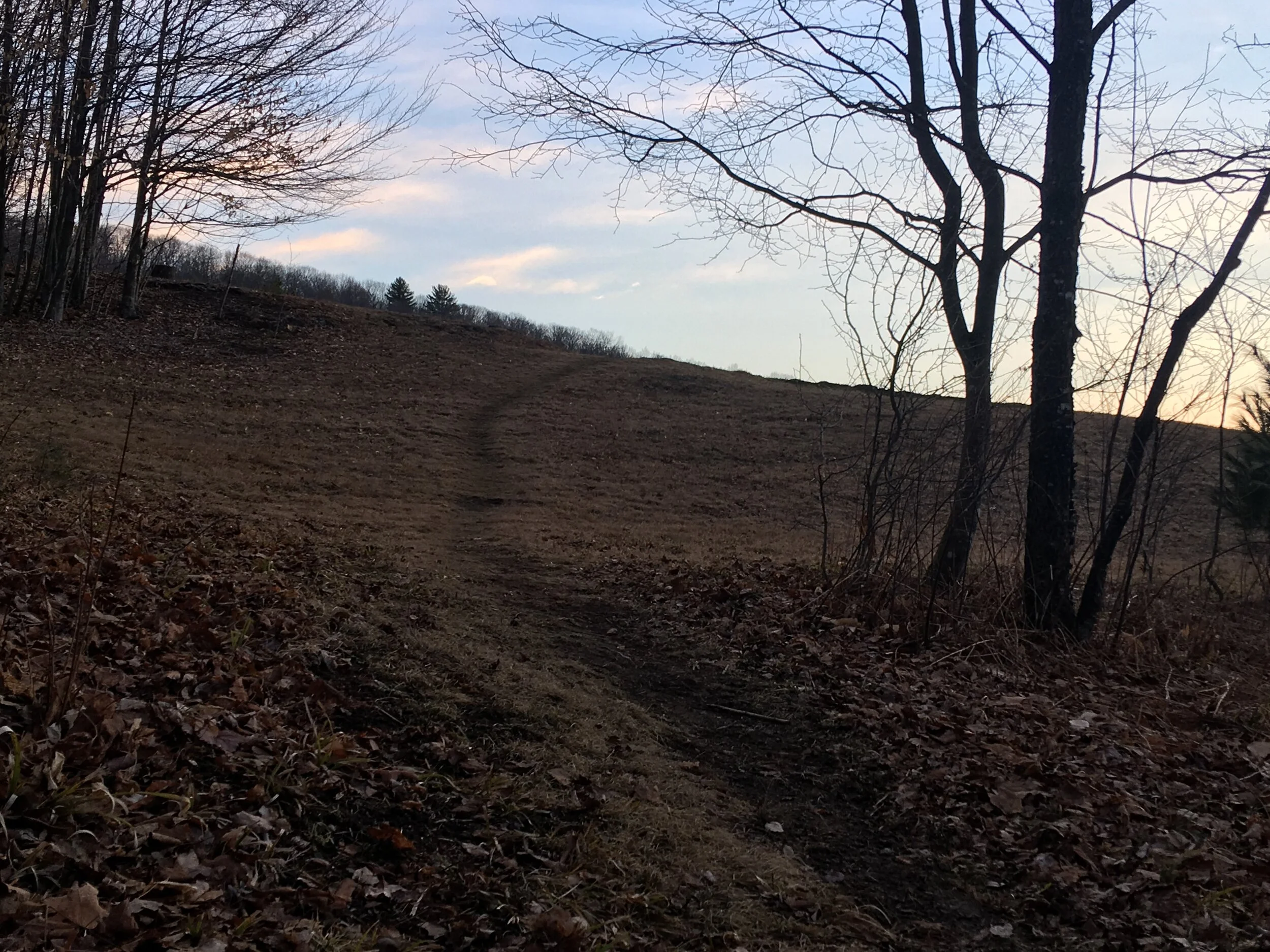
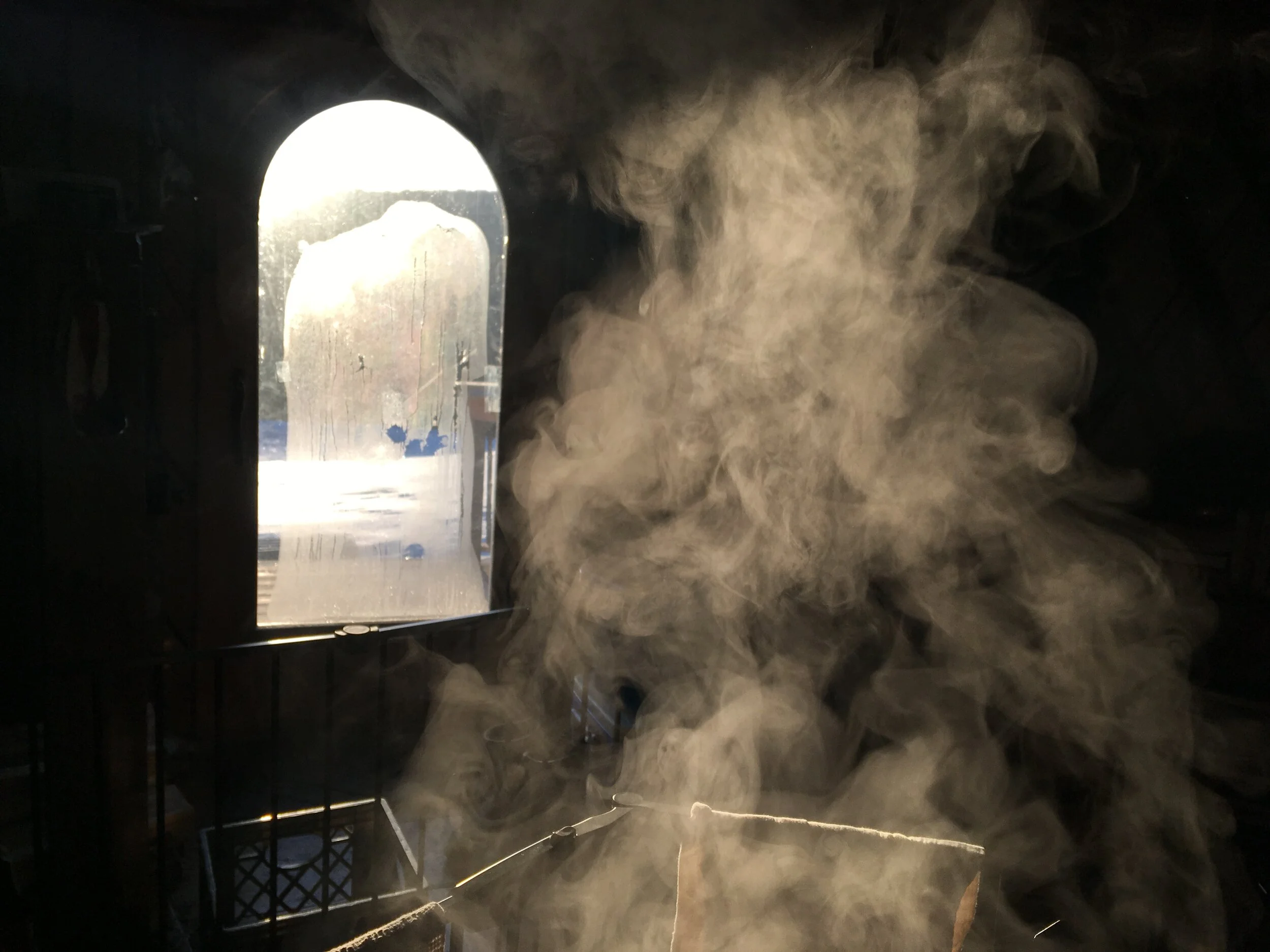


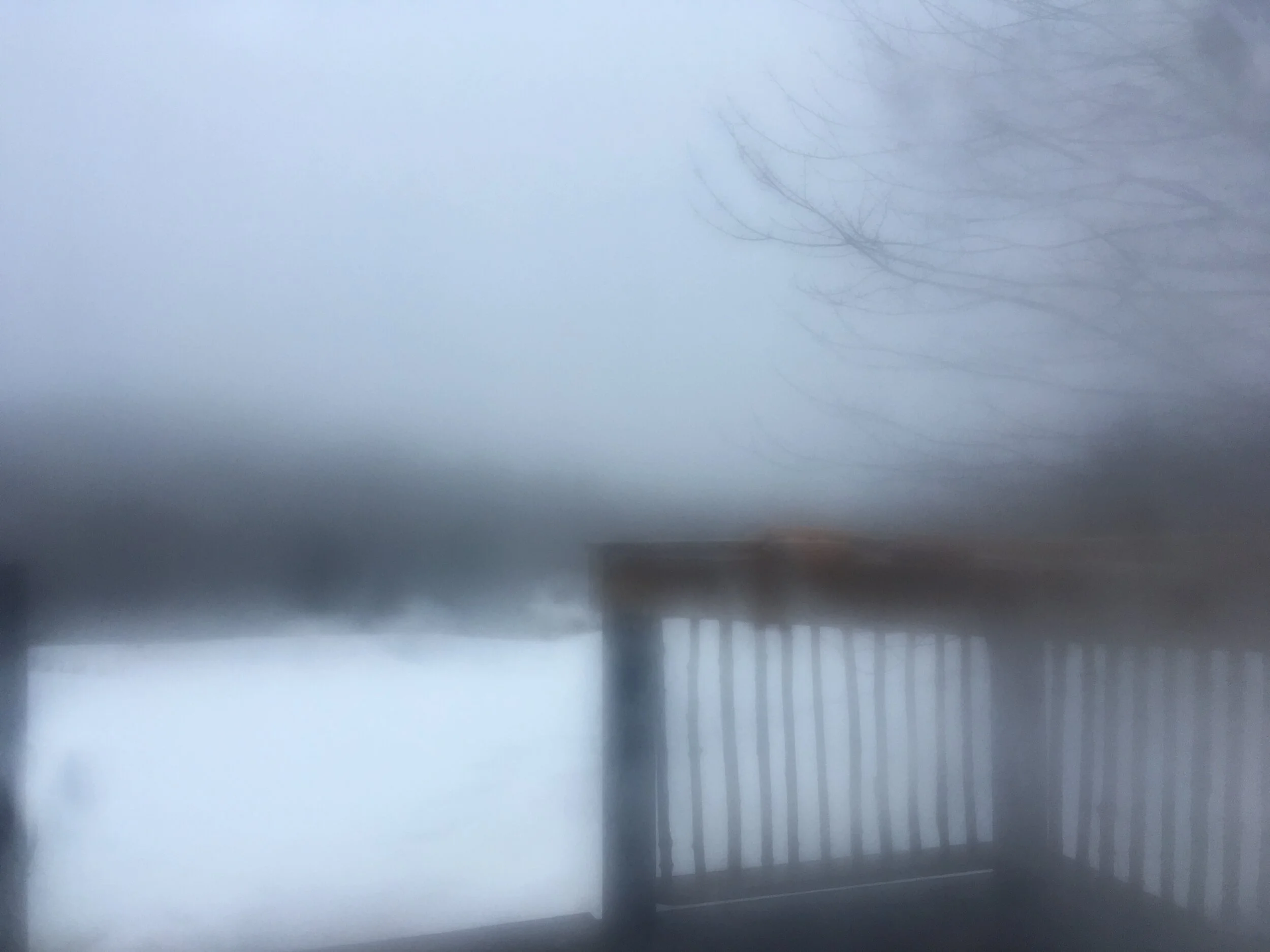
“Wow – it’s so peaceful here. I just feel the stillness as soon as I arrive. It must be amazing to live here all the time – no cares, no worries, just rest and prayer and peace.” The middle-aged man sitting next to me at table concluded his thoughts, “Honestly, I’m a bit jealous that you get to live like this for so long.”